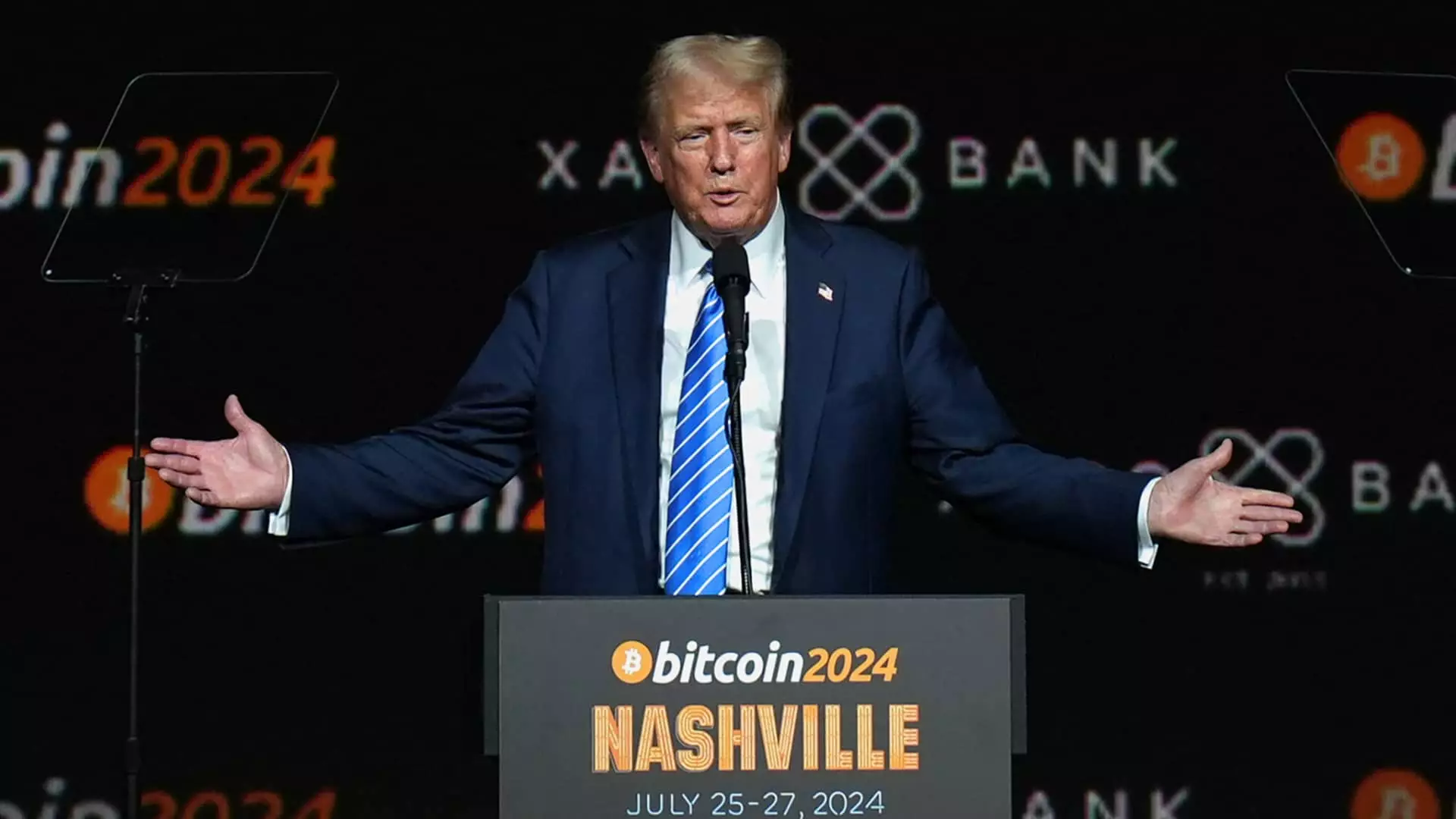The recent developments surrounding World Liberty Financial (WLF), a cryptocurrency initiative linked to Donald Trump, have sparked significant discussions in both political and economic circles. This ambitious project, which aims to capitalize on the burgeoning cryptocurrency market, presents a complex landscape of financial aspirations, personal gains, and ethical quandaries. The publication of the so-called “World Liberty Gold Paper” has laid bare the project’s intentions, revealing how the Trump family stands to profit immensely from token allocations while leaving questions about accountability and regulatory compliance in the air.
The Financial Framework and Token Distribution
The cryptocurrency arena often operates on the premise of transparency; however, WLF’s approach raises eyebrows. The recently disclosed document outlines that the Trump family is set to receive a staggering 22.5 billion “$WLFI” tokens, valued at approximately $337.5 million at their initial launch price of 1.5 cents each. Such a level of personal profit is eye-catching, particularly in the context of a political campaign. The roadmap outlines the project’s goal of raising $300 million, aiming for a ballooned valuation of $1.5 billion, a somewhat ambitious target considering that only about $12.9 million worth of tokens had been sold shortly after the launch.
Furthermore, the structure of revenue allocation is even more telling. The proposal states that a Delaware-based entity, DT Marks DEFI LLC—tied to Trump—will receive three-quarters of WLF’s net revenue. This setup suggests a comfortable financial nest for the Trump family while sidestepping any direct accountability under the pretense that they are not involved in the operational side of the venture. The dichotomy between their financial benefits and lack of operational responsibility raises significant concerns regarding conflicts of interest and the ethical implications of a sitting presidential candidate leveraging a personal cryptocurrency business for profit.
The paper presents WLF as a crypto bank, a platform for users to invest, lend, and borrow digital currencies. However, an underlying narrative of the cryptocurrency landscape involves scrutiny from regulatory bodies. With the document explicitly stating that the project and its tokens are separate from any political affiliation, it leaves the door wide open for scrutiny regarding actual compliance with existing securities laws. The ambiguous nature of token sales and operational responsibilities necessitates a careful examination of how WLF plans to adhere to stringent regulations surrounding financial practices in the United States.
The involvement of individuals such as Zachary Folkman and Chase Herro, who have previous connections to other questionable ventures, further complicates matters. Their past affiliations could indicate a lack of stability or credibility in the leadership structure of WLF. Potential investors may want to weigh the risks carefully, given the nebulous history of those at the helm and the unclear ethical foundations of the project.
WLF’s entry into the cryptocurrency scene is positioned as part of a broader trend of embracing decentralized finance (DeFi) principles. However, the commercialization of DeFi tools, particularly through associations with high-profile political figures, threatens to dilute the fundamental ideals of decentralization. As cryptocurrency enthusiasts advocate for an unregulated financial landscape, the filtering of such projects through political affiliations may lead to skepticism and decreased public trust.
The project presents itself as a community-oriented initiative, with a stated allocation of token distributions for growth incentives and initial support. Yet, the lion’s share of these tokens appears earmarked for foundational leadership, which includes not just the Trumps but also various family members of Trump’s political confidants. The disparity in token distribution emphasizes a model that could favor insiders over broader community engagement.
World Liberty Financial stands at a crossroads of opportunity and ethical ambiguity. While it offers a fresh perspective on leveraging cryptocurrency in modern finance, the portrait painted by its financial structures and leadership raises essential questions about accountability, regulatory compliance, and ethical governance. As Donald Trump is embroiled in a heated electoral race, the viability of WLF as a legitimate financial project remains to be seen. Observers and potential investors alike should approach this venture with caution, taking into account the multitude of financial and ethical complexities that accompany it. The unfolding story of World Liberty Financial will likely either spotlight the potential for cryptocurrency as an inclusive financial tool or underscore the perilous intersections between politics and finance.


Leave a Reply